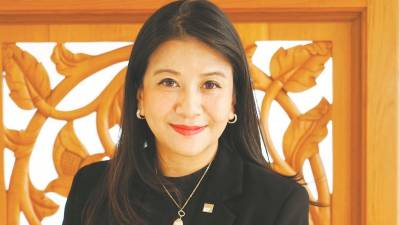PETALING JAYA: Budget 2026 focuses on laying the foundation for a more competitive, inclusive, and sustainable Malaysia, consistent with previous Madani Budgets.
Ernst & Young Tax Consultants Sdn Bhd Malaysia, managing tax partner Farah Rosley said, beyond targeted tax reforms, the government is advancing a broader fiscal strategy that leverages digitalisation, transformation and enhanced governance to strengthen public finance and service delivery.
“This reflects a commitment to inclusive, technology-driven governance and marks a decisive move away from traditional fiscal management towards progressive and responsive policymaking, where resilience is built not by raising rates, but by raising standards,“ she said in a statement.
Farah noted that, as widely anticipated, no new taxes were announced, apart from the reiteration of the introduction of the carbon tax, which was announced in Budget 2025.
In the past three years, she said, the Malaysian tax landscape has seen significant developments such as the introduction of a capital gains tax on disposal of shares and foreign capital assets, removal of foreign-sourced income exemptions, the rollout of e-invoicing, a 2% dividend tax on individuals, the recent expansion of Sales Tax and Service Tax (SST) and the announcement of a self-assessment system for stamp duty from Jan 1, 2026.
While no new taxes were introduced, Malaysia’s tax-to-gross domestic product ratio is set to rise in 2026, driven by stronger enforcement, digitalisation and better compliance.
Farah noted that the authorities, including the Malaysian Anti-Corruption Commission, Royal Malaysia Police, Royal Malaysian Customs Department and Malaysia Competition Commission, have already recovered RM15.5 billion since 2023.
“The full rollout of e-invoicing and the Digital Audit Hub marks a new era of real-time transparency,” she said, adding that new digital tax stamps and a Centralised Screening Complex will further curb evasion and illicit trade.
Moving on, Farah said Budget 2026 builds on the momentum of the New Industrial Master Plan 2030 and the New Investment Incentive Framework, targeting high-impact sectors such as semiconductors, artificial intelligence, digital economy and energy transition.
“The goal is clear – to attract high-value investments and enhance national competitiveness,” she said, adding that key initiatives include the Asean Business Entity status to boost regional expansion, the Investor Pass for easier talent mobility, and the Single Family Office scheme, which has drawn RM400 million in assets with a RM2 billion target by 2026.
“A new outcome-based incentive framework, rolling out in early 2026, will link incentives to job creation, regional equity, and national priorities,“ she said.
Touching on the carbon tax, Farah said Budget 2026 reaffirmed plans to introduce a carbon tax in 2026, targeting the iron, steel, and energy sectors. However, details remain limited.
“The carbon tax will be aligned with the National Climate Change Bill and the National Carbon Market Policy to ensure smooth implementation,” she said.
Malaysia also aims to match global standards, including the European Union’s Carbon Border Adjustment Mechanism, to avoid double taxation.
The tax is expected to start at a low rate to minimise inflationary impact and allow gradual refinement.
Farah noted that, in support of Malaysia’s broader climate ambitions, Budget 2026 introduced a targeted suite of other sustainability-linked measures.
These include the continuation of the Green Technology Financing Scheme (GTFS 5.0) with RM1 billion in financing, and government guarantees of up to 80% for waste sector projects and 60% for other green sectors such as energy, water, transport, and manufacturing.
Farah also noted that the Budget also reinforces the National Energy Transition Roadmap through allocations for solar projects under the Large-Scale Solar Programme (LSS6 – nearly 2GW capacity), the Corporate Renewable Energy Scheme (expected to generate RM3.5 billion in investment) and an additional 300MW quota under the Feed-in Tariff Programme for biogas, biomass and small hydro.
In essence, Farah said, Budget 2026 reflects Malaysia’s steady shift towards a smarter, greener, and more resilient economy, prioriting fiscal responsibility while embracing digitalisation, sustainability, and innovation as growth drivers.
She added that Budget 2025’s success will hinge not on introducing new taxes, but on “raising standards” through better governance, stronger enforcement, and targeted incentives that position Malaysia for long-term competitiveness in a rapidly evolving global landscape.
